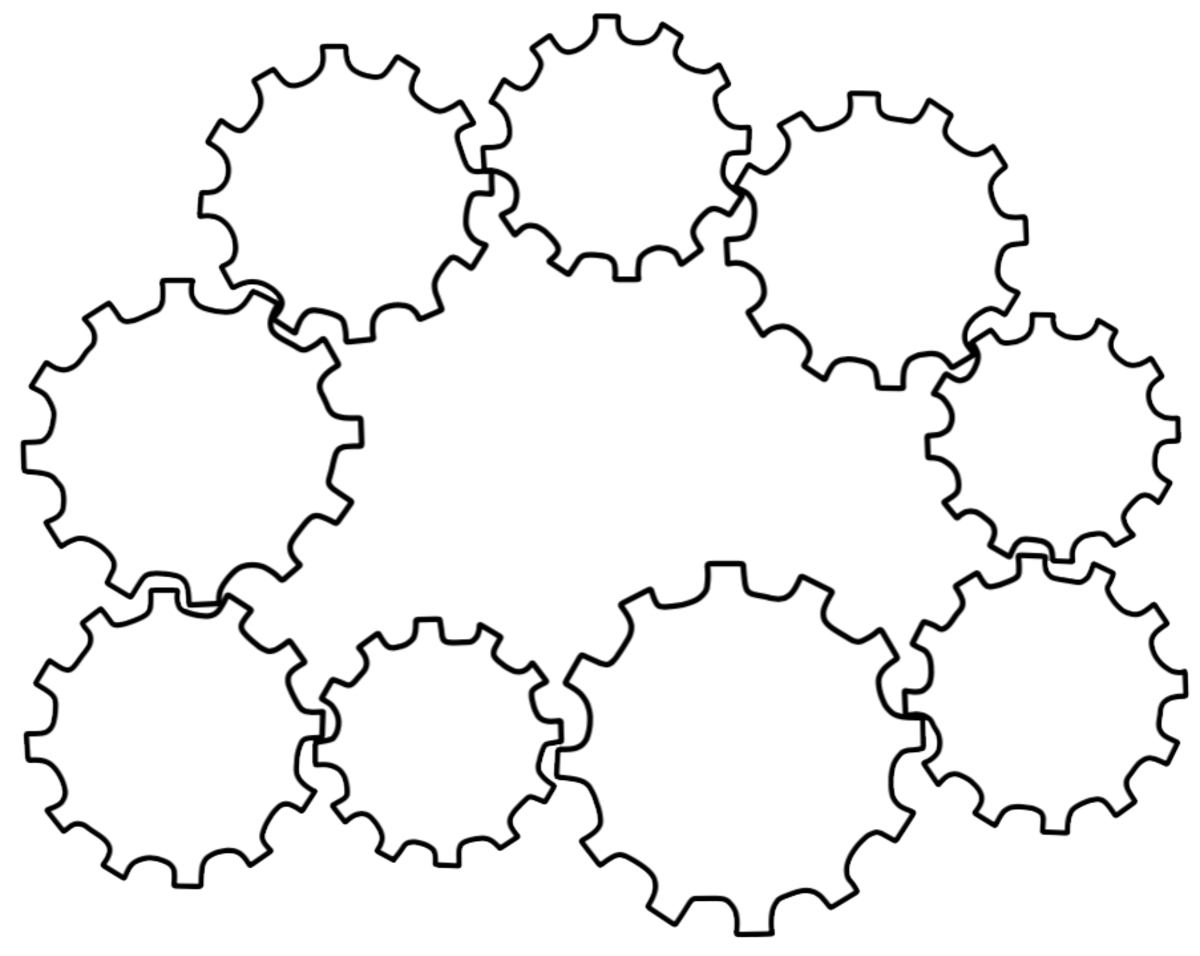The Stevens Math Circle Initiative is an enrichment program for elementary and middle school students intended to inspire and nurture a love for mathematics, and to teach critical reasoning skills.
Math circles expose students to mathematics that is interesting, challenging, and fun, and that goes well beyond the material covered in a typical math class. They aim to show students a different side of mathematics—one where ingenuity, creativity, collaboration, and deep learning take priority over rote memorization, routine problem-solving, and standardized assessment.
What's a Math Circle?
A math circle is an enrichment program intended to stimulate interest in and enjoyment of mathematics. At meetings, participants are taught to actively explore problems and to articulate their reasoning—without being pressured, and without being handed the answer. They are encouraged to collaborate, engage in mathematical discussion, and participate in mathematical games and activities. Math circles have a long history in Eastern Europe, where they have contributed to the early education of many prominent mathematicians and scientists, but they are relatively uncommon in the United States. We’re trying to change that.
About Our Initiative
Faculty in the Department of Mathematical Sciences founded the Stevens Math Circle Initiative in 2017, working with two local public schools to start math circles for elementary school students. Since then, we have organized over 50 math circle programs with over a dozen partners in our local community. Our approach entails enlisting the help of talented STEM undergraduates to facilitate math circles in the classroom, which allows us to organize multiple math circles at a time while providing a unique teaching experience to our students.
NSF-Supported Research Project
Beginning in 2023 and continuing through the end of 2025, we are conducting a research project supported by a grant from the National Science Foundation (NSF Grant No. 2236229) through its Improving Undergraduate STEM Education initiative. The project, conducted by Jan Cannizzo (PI) and Andrey Nikolaev (Co-PI) of the Department of Mathematical Sciences and Emily Atieh (Co-PI) of the Teaching and Learning Center, supports integrating math circles into the undergraduate curriculum at Stevens via the creation of a year-long community engagement program.
As part of our project, we have created a credit-bearing undergraduate math elective course in which students learn about community engagement and extracurricular mathematics. During their time in the course, these undergraduates lead math circles each week in the local community and write weekly reflections about their experiences. This cycle of pedagogy-practice-reflection has provided us with a unique opportunity to better understand how the undergraduates’ experiences as math circle leaders shapes their perceptions of math and its role in their education, future careers, and within society as a whole. Our study is part of a larger effort to evaluate the success of our math circle program and identify the critical components and best practices for its integration into the broader undergraduate mathematics curriculum.
Anyone interested in this work is invited to contact Jan Cannizzo at jan.cannizzo@stevens.edu for more information. As part of the output of our project, we plan to provide materials that can help others organize math circles similar to ours on this website. Please check back again.
Initiative News
[How-To] Make Math Fun
The minds behind Stevens’ Math Olympiad and Math Circle Initiative advise on nurturing a love of the subject in children.
Stevens Math Circle Initiative Receives $300K NSF Grant to Expand Programming
A three-credit course and new teaching opportunities are now available to Stevens undergraduates.









